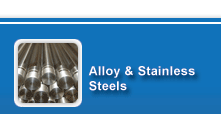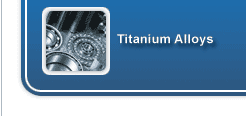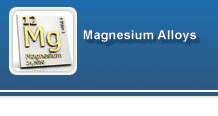Implant Grades
Aircraft Materials supplies a wide variety of Implant Grade Alloys.
Titanium Grade 5/ 6AL-4V ELI |
Widely used in the medical industry. Its excellent biocompatibility make it an ideal choice, especially when direct contact with bone or tissue is required. Titanium 6AL-4V ELI (Extra Low Interstitials) has improved ductility and fracture toughness compared to regular 6AL-4V. |
Titanium Grade 6AL-7Nb |
Titanium 6Al-7Nb is a dedicated, medium strength titanium alloy for surgical implants. The alloy was developed specifically for the manufacture of femoral component items used in hip prostheses. Its metallurgy is closely analogous to that of Titanium 6AL-4V but biocompatibility is improved with the replacement of vanadium by niobium. |
Titanium Grade 2 |
Titanium Grade 2 is commonly used in both medical and dental implant applications due to its excellent biocompatibility and corrosion resistance. |
Stainless Steel 316LVM (Vac Melt) |
Stainless steel 316LVM is an improved rust- and acid-proofed chromium-nickel-molybdenum-steel alloy, refined by an ESR remelt process), designed for components with increased chemical stability due to the quality standards ISO 5832-1 and ASTM F-138. This grade is commonly used in standard implants, surgical instruments and implant screws. |
Stainless Steel 1.4472 |
1.4472 is an austenitic stainless steel with excellent corrosion resistance combined with good mechanical properties. Rigorous selection of the raw materials used in the steel and the use of consumable electrode remelting results in a very high quality grade for the production of permant surgical implants and osteosynthesis devices. |
Phynox® KL F1058 Implant |
Phynox KL is a hardenable, cobalt-chrome-nickel alloy with excellent corrosion resistance and biocompatibility used mainly in implants for joint replacements and other dental and medical applications. |
| Cobalt BC/ CCM ASTM F1537 Alloy 1; ISO 5832-12 |
Cobalt-Chrome-Molybdenum (CCM) is commonly used in the orthopaedic implant industry, due to its excellent biocompatibility and wear resistance. CCM alloy has a much higher tolerance in the human body than that of Nickel or Cobalt and therefore less toxicity, making it ideal for implants for knee replacements, hip replacements, shoulder replacements and general fracture fixation. |
BioDur® 108 Alloy |
BioDur® 108 alloy (a product of Cartech) is an essentially nickel-free austenitic stainless alloy with high nitrogen content to maintain its austenitic structure. The alloy’s tensile and fatigue strength are superior to that of Type 316L (ASTM F138), 22Cr-13Ni-5Mn (ASTM F1314) and 734 alloy. Its pitting and crevice corrosion resistance is superior to Type 316L and equivalent to 22Cr-13Ni-5Mn and 734 alloy. Nonmagnetic and essentially free of ferrite phase. |
| MP35N ® ASTM F562; ISO 5832-6 |
Produced by vacuum induction melting (VIM) followed by vacuum arc remelting (VAR), MP35N® alloy is a multi-phase nickel-cobalt based alloy with a unique range of properties - ultra high strength, toughness, corrosion resistance, biocompatibility and moreover MP35N® is nonmagnetic. It is widely used in various medical applications such as orthopaedic implants, lead wire for pacemakers, and cardiovascular stents. |
Customer Reviews - What Customers Say About Us!
| CLICK HERE TO VIEW OUR BROCHURE |
Disclaimer
Every effort is made to ensure that technical specifications are accurate. However, technical specifications included herein should be used as a guideline only. All specifications are subject to change without notice.
















